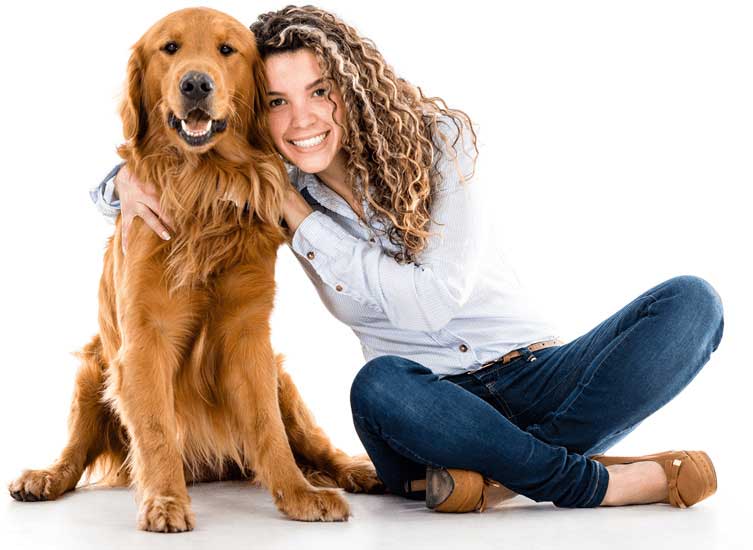Becoming a successful dog trainer demands more than just a love of dogs. The field requires many personality characteristics, not the least of which are unlimited compassion and patience. You must be good with both people and dogs, and strong teaching and communication skills are essential. For instance, to succeed in teaching a command (AKA “Cue”) , you have to be able to break the skill up into understandable components and convey them clearly to both pet and owner. “A secret about dog training is that most dog trainers don’t train dogs. They train people.” American Kennel Club
Without strong people skills, the love you have working with animals amounts won’t reach its full potential and you may find yourself limited in your ability to help them. Owners must be able to trust you and feel confident that you have the knowledge and skill to help them strengthen the bond with their pet. The owner also needs to believe you can assist them in teaching their beloved dog to become a well-mannered, reliable companion who will follow your cues in the midst of a distracting environment.
What do Dog Trainers Actually Do?
“Hero” is not too strong a word for the person who achieves what a great dog trainer can achieve; they are heroes to both dog and owner, building an invaluable bridge between them. Trainers help grow the bond between human and animal while developing solid life skills for the dog.
Dog trainers have to be able to work with animals of varying ages. Training a puppy can prevent the development of negative behaviors and provide lifesaving skills. For example, an immediate and unshakeable ability to respond to the command “Come!” can spare a dog many dangerous encounters.
60% of dog owners contact a dog trainer for assistance in addressing normal but unwanted behavior challenges. These include; chewing, digging, jumping on family and guests, running out of doors or gates, stealing food from counters or trash, excessive barking and house soiling. Dog trainers can provide vital information and treatment programs to help owners alleviate or eliminate these kinds of behaviors.
Most owners contact trainers with various requests with dogs between the ages of 8 weeks to 3 years.
Sometimes, dog trainers are called in to help manage the behavior problems of older dogs. These might be recently acquired shelter dogs suffering from fear, or they might be longtime pets who have developed unwanted behaviors. Helping adult dogs overcome issues like fear/shyness or separation anxiety can be highly rewarding.
What can also be rewarding is the tangible differences a dog trainer can make in the lives of dogs and the people who love them. This career can be very interesting as every case a dog trainer works on is slightly different than the one before.
For dog trainers, no two days are alike!
Can I Really Make a Living as a Dog Trainer?
The pet industry is huge and growing, with estimates of over 15,000 animal trainers in the US. The need for qualified dog trainers is keeping apace with that growth. The median annual salary for a dog trainer is $34,760.
In some parts of the country, NYC, LA, SF, Chicago dog trainers can and do earn significantly more than the median. For example, in Southern California a huge area extending from Ventura to the Mexican border and encompassing Los Angeles and San Diego, dog trainers often charge between $45-95 per hour.
In addition to a good salary, dog training offers wonderful flexibility and career potential. If you just want a supplemental income in your free time, dog training allows you to arrange your work around an existing schedule. Some dog trainers strike out on their own, creating great small business opportunities for themselves. Others choose to work for stores such as Petco. How far you take your career is really up to you.
Is Attending a School for Dog Trainers Necessary?
Certainly for someone just starting out. Simply put there is a tremendous amount to learn about behavior and how to apply behavioral principles in a positive fashion to modify/teach behavior. Aside from the academic requirements, experience is key. Good schools combine both theory and hands on experience. So, while it is possible to become a dog trainer and not attend a school for dog trainers, aspiring dog trainers are well advised to consider one as they dramatically increase their chances to succeed as a professional dog trainer.
Are certifications important?
Dog owners have become savvy shoppers! They understand that a certified dog trainer has reached the standard required to obtain the certification granted. Certified dog trainers stand out from those who haven’t been certified. The ABCDT certification awarded by Animal Behavior College is the most popular certification with over 14,000 ABCDT’s in North America. The CPDT-KA offered by The Certification Council for Professional Dog Trainers (CCPDT) is another highly respected and sought-after certification. The CCPDT is an independent certifying organization.







